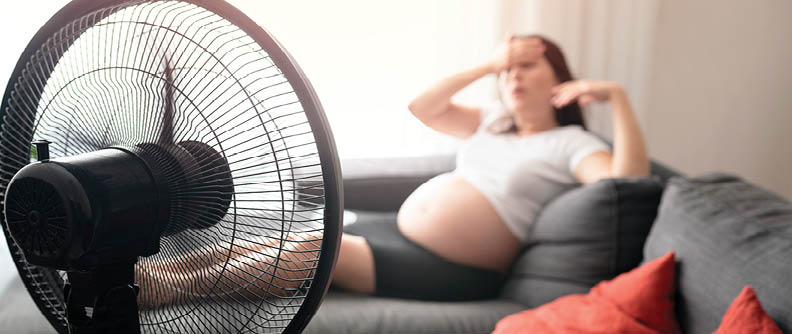Around the latter half of your second trimester of pregnancy, as your body continues to change in preparation for your baby’s birth, you might notice new symptoms. Some could interrupt your daily routine, but there are ways to manage them. Here are a few of the most common changes that might happen to you.
Changes in blood volume
The amount of blood in your body expands throughout your pregnancy. This helps both you and your baby receive the oxygen and nutrients you need to stay healthy. It also can lead to extra fluid in your tissues, which may make your hands, ankles, and feet swell, especially at the end of the day.
To prevent swelling each day, try:
- Avoiding salty foods
- Drinking 8 to 10 glasses of water
- Staying off your feet for long periods of time. Try shifting positions rather than standing on still on your feet for long periods of time.
- Wearing comfortable shoes that are not tight
- Wearing support stockings. Put them on when you wake up and get out of bed.
- Taking a short walk to break up the time spent sitting, especially you sit for long hours at home or at work
Changes in body temperature
You might also notice that you feel hotter than normal. This is completely normal and is caused by the baby generating heat and by hormones that fluctuate as your baby develops. It may also result from weight gain during pregnancy.
To help cool off, be sure to drink lots of water. Also, keep your home and bedroom cool, and stay out of the sun. Taking a cool shower or putting your feet in a cold bucket of water may also help bring the temperature down.
Heartburn
Heartburn during pregnancy occurs when stomach acid rises into the esophagus, the tube connecting your mouth and stomach. This reflux of acid results from increased hormone levels and from the pressure of the growing uterus on the stomach.
You can manage heartburn by:
- Avoiding caffeine and fried, rich, or spicy foods
- Eating small meals throughout the day instead of a large breakfast, lunch and dinner
- Propping your head up on a pillow or raising the head of your bed
- Staying sitting or standing upright for at least 30 minutes after you eat
- Using antacids recommended by your doctor
Leaking nipples
As your body prepares for breastfeeding, there could be changes in your breasts. Some pregnant people experience white or yellow fluid leakage from their nipples. This first breast milk, known as colostrum, is the perfect food for your baby, and your body will continue to produce it throughout pregnancy and after you give birth. Colostrum supplies nutrients as well as antibodies that help protect against infections.
If you experience nipple leakage, try placing all-cotton breast pads inside your shirt or bra. Avoid using plastic liners. If you have bloody, dark or greenish leakage, please call your care team for evaluation.
As always, if you have any questions about any pregnancy symptoms you’re experiencing, don’t hesitate to contact your care team.
